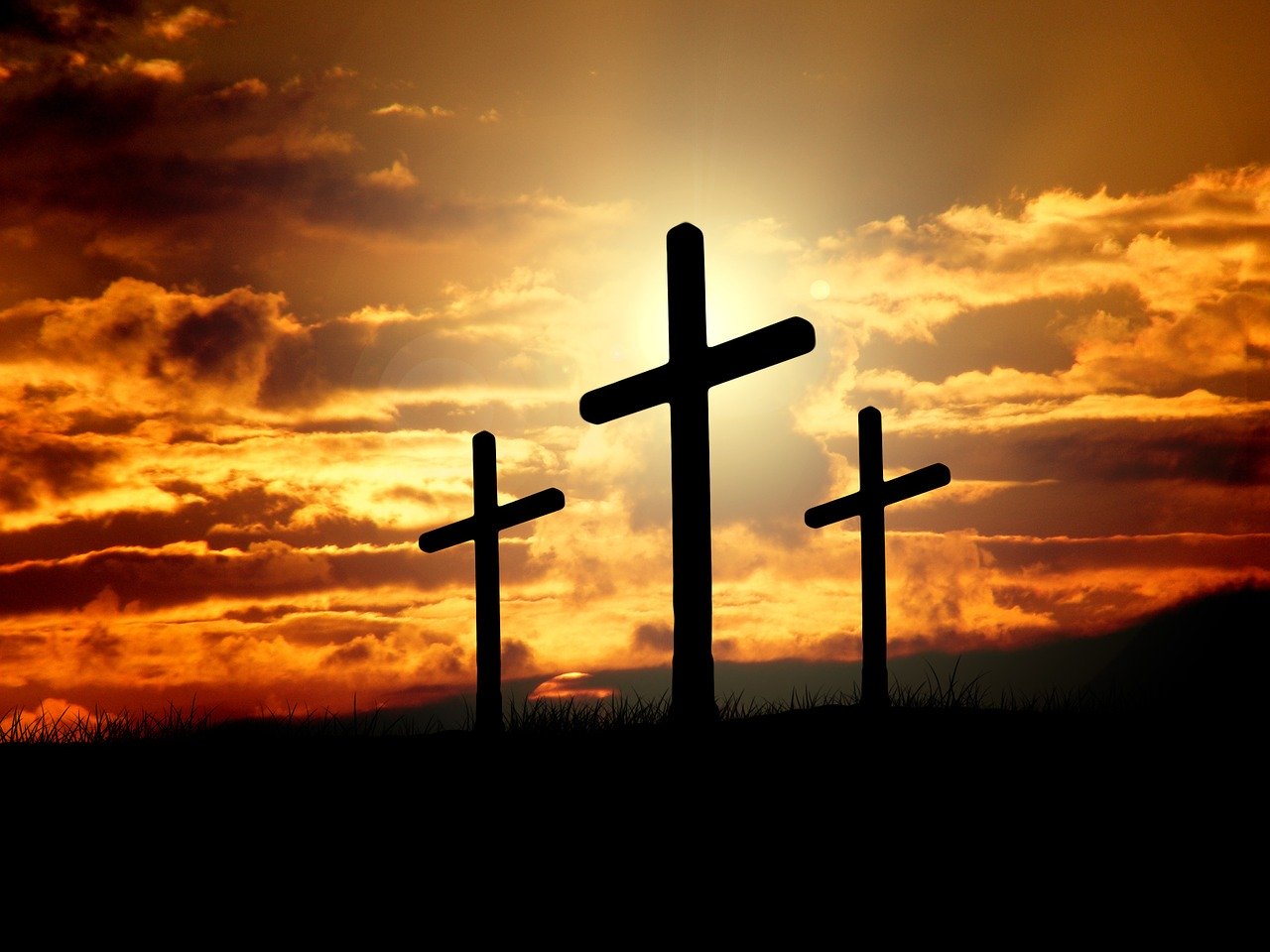


He didn’t have to die. However, he loved you and me so much that he chose to die in our place so that we would not have to suffer the punishment for our sins.
The concept of a blood sacrifice as atonement for sin goes back to the time that man rebelled against God and the perfect creation he made for human beings. This sacrifice was codified by God when he set apart the Israelites and provided them with guidelines for living. That law included a system of sacrifices to atone for different sins. Among the sacrifices were those of animals without blemish, signifying perfection. (Leviticus 22:20) These sacrifices had to be repeated over and over since people kept sinning against God. Through the death of Jesus, God provided a once-for-all way, for the sins of men and women to be atoned.
In the New Testament, we read that John the Baptist recognized Jesus as “the Lamb of God, who takes away the sin of the world!” (John 1:29) This is a reference to the perfect, sacrificial lamb that was called for in the Old Testament law.
Another John, the disciple of Jesus, who wrote an eyewitness account of the three years he spent with Jesus, explained the ultimate sacrifice that was made by Jesus, the Messiah. “For God did not send his Son into the world to condemn the world, but to save the world through him.” (John 3:17) This made Jesus the ultimate sacrifice —satisfying for all time the requirements of God’s justice.
The apostle Paul wrote that “Christ died for our sins, according to Scriptures” (1 Corinthians 15:3) because “all have sinned and fall short of the glory of God” (Romans 3:23). This simple statement of fact reminds us that our personal sin, our rebellion from God, has us heading to judgement and eternal separation from God.
However, we do not have to suffer throughout all eternity.
“For God so loved the world that he gave his one and only Son, that whoever believes in him shall not perish but have eternal life.”
The sacrifice of Jesus on the cross shows the depths of God’s love for us. (Romans 5:6-8) But it is through his resurrection that we can see God’s triumph over death. When we acknowledge that we are sinners deserving of death and accept the gift of Jesus’s sacrifice on our behalf, we can be set free of the condemnation of sin and begin a journey that will culminate in everlasting life in the presence of God.
Answers to Life’s Greatest Questions is provided by Living Dialog Ministries. Visit our website at LivingDialog.org where you’ll see the wide range of books and booklets to help you go deeper in the study of God’s Word.